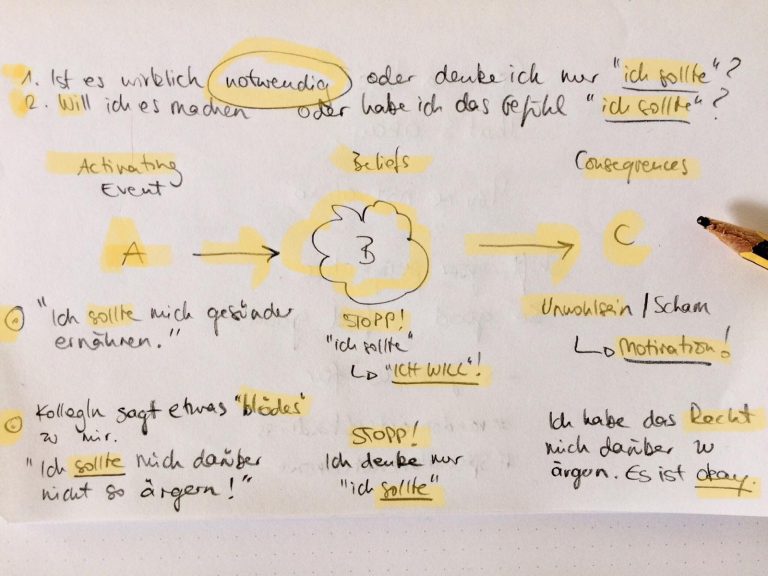

I should, should I?
I shouldn't get so upset about this! I should eat better! I should be at the gym! I should be able to handle this!
Sounds familiar?
What we're actually telling ourselves is: I should be better, different than I am. I'm not good enough the way I am.
Of course it is not wrong to have goals. But far too often we are chasing goals to meet the expectations of others. Expectations that we have internalized without questioning them. And then we blame ourselves for not achieving those goals. This is often accompanied by feelings of guilt and shame.
Instead of constantly letting your mind circulate around what you should or should not do, the following questions can help you to change your perspective and break out of this destructive cycle:
If you want to do it or it is necessary, then consciously replace your (mental) statement with "want" or "need".
But if your answer to both questions is "I should do this," then ask yourself why? Why do you feel that you should do this?
If you use this regularly, you will soon notice how the "I should still" loses power over you.
This not only leads you to break away from goals and expectations that do not further support you, but the cognitive restructuring from "I should" to "I want" can change your emotional response from shame and guilt to acceptance and motivation. It is therefore a matter of questioning dysfunctional thought patterns and replacing them with more coherent sentences.
This method is based on the so-called ABC model by Albert Ellis:
